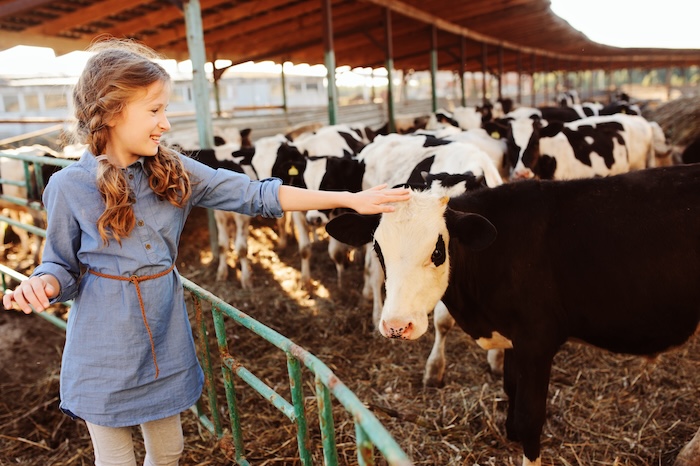Hey there parents! We know that the recent news of the bird flu outbreak has been a little scary. You might have already heard that an unusual strain was detected in California or noticed the soaring egg prices and wonder what this means for the safety of your family. Well, not to worry! At Ocean Pediatrics, we’re here to explain all you’ll need to know as a parent to protect yourself, your little ones, and your furry friends too!

What is bird flu?
Bird flu (aka avian flu) is caused by the avian influenza A (H5N1) or highly pathogenic avian influenza (HPAI) virus. While this flu virus commonly infects birds, it has mutated to infect mammals, especially cattle such as dairy cows. While less common, bird flu can be passed to other mammals too, including pets and humans. As a result, parents need to know that, with this mutation of the bird flu virus, raw milk consumption is an even bigger no no than usual! Ultimately, it’s crucial to limit the spread of this virus to save lives and avoid giving it the opportunity to mutate into more harmful strains.
How does bird flu spread to pets and humans?
While it’s rare for humans to get infected with bird flu, it’s definitely possible if the virus enters the body through a person’s nose, mouth, eyes, or if it is inhaled. This happens if a person comes into contact with bird-flu infected raw milk, touches their face with hands that have come into contact with contaminated items, handles animals that are or have been infected with the virus, or breathes in dust or droplets with the virus. Symptoms can range from mild to severe and can be deadly — in rare cases, even for humans.

What is the current risk (aka how worried should I be)?
Luckily, the current risk for the general public is quite low. This is largely due to the fact that, as of now, bird flu is only being passed from animals to animals and animals to humans. As of early February 2025, there were no known cases of passing bird flu human to human in the US. While most cases of the bird flu in the US have been in California, right now there is still little cause for concern. People who are around farm animals, spend time on farms, or those who have been in contact with raw milk are at a higher risk. That means, for most families, it’s very simple to lower the risk of infection.
What symptoms of bird flu in humans should parents watch for?
While it is unlikely for your kids to contract the virus, if your child or pet have come into contact with an infected animal or if they have consumed raw milk products, watch for symptoms such as conjunctivitis (pink eye), cold or flu symptoms, and more extreme symptoms such as vomiting, diarrhea, difficulty breathing, pneumonia, and seizures.

How can my family avoid getting sick?
We highly discourage any member of your family (including pets) from consuming unpasteurized dairy products or any eggs, meat, or poultry that has not been fully cooked. In addition, we highly recommend limiting the possibility of coming into contact with any potentially sick or dead animals. This means, ideally, avoiding trips to farms for the time being. Look after your pets and do your best to keep dogs and cats away from sick or dead birds too. And of course, always follow the careful recommendations of trusted medical professionals and public health services to stay safe and prevent the spread of viruses!

To calm any concerns, please feel free to keep an eye on updates on bird flu in California and the current situation across the US. And, as always, don’t hesitate to reach out to the knowledgeable medical professionals at Ocean Pediatrics for the best advice on how to keep your family as safe and healthy as possible! To make an appointment at any of our locations, including our brand new Newport Back Bay office, visit us here.






